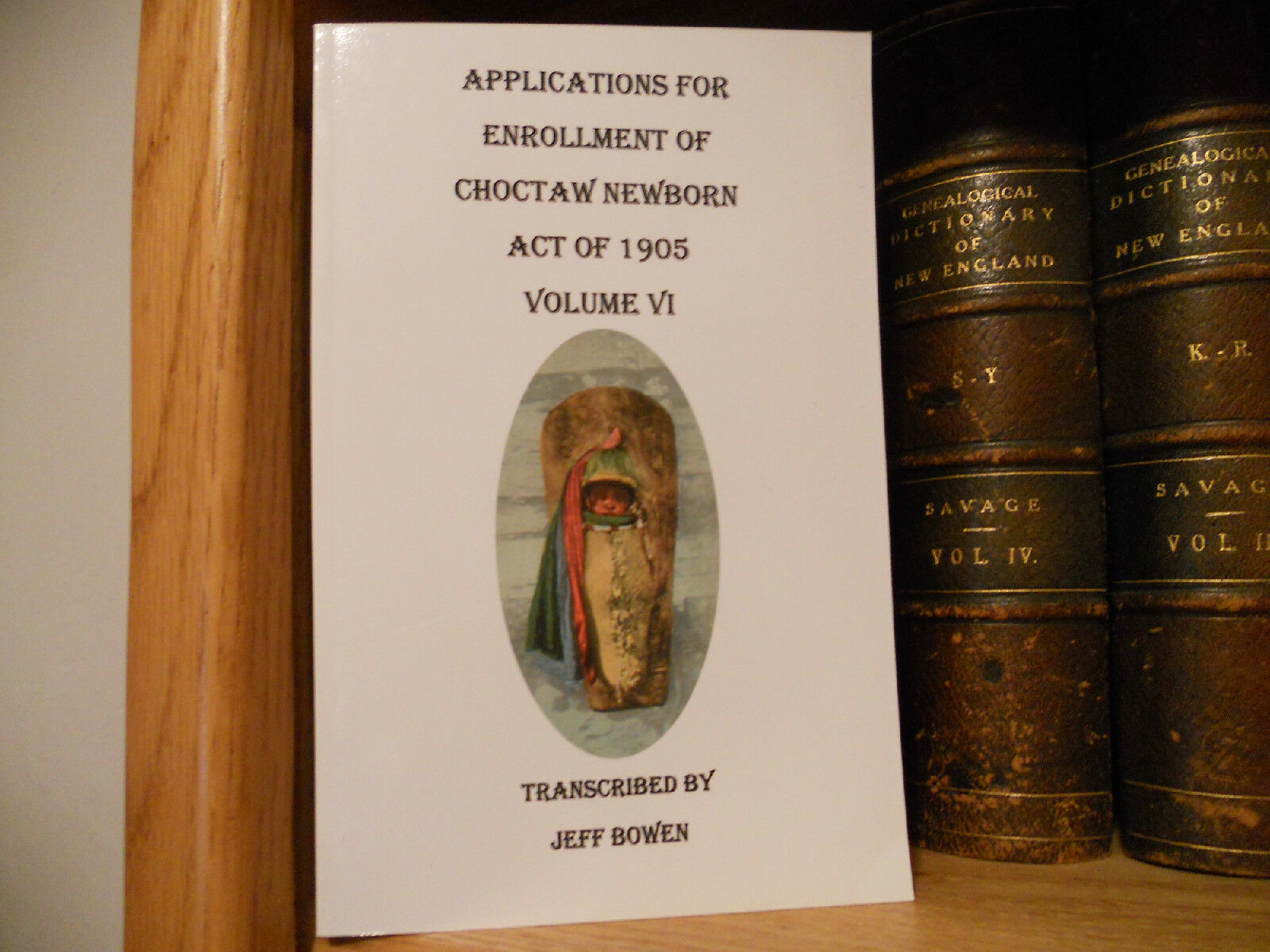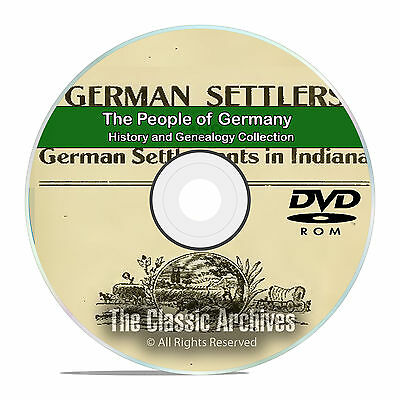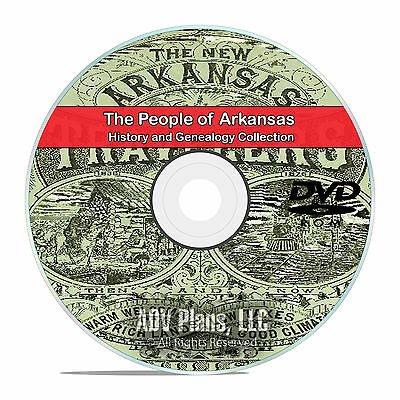-40%
Applications For Enrollment of Choctaw Newborn Act of 1905 Volume VI
$ 7.91
- Description
- Size Guide
Description
<img src="https://ti2.auctiva.com/web/aswCredit.gif" border="0"><br><a href="https://pages.ebay.com/seller-center/listing/listing-advanced-sellers/third-party-listing-tools.html#auctiva" target="_blank"><img src="https://ti2.auctiva.com/images/sc1line1.gif" border="0"></a>Applications For Enrollment of Choctaw Newborn Act of 1905
Volume VI
Softbound volume totaling
342
pages. In excellent condition. Description per the publisher;
This is the third series of transcriptions by Mr. Bowen devoted to the enrollment of "Newborn" members of the Five Civilized Tribes under the Dawes Act. Previous series have covered Cherokee and Seminole Newborn.
The
Applications for Enrollment of Choctaw Newborn, Act of 1905
, National Archive film M-1301, Rolls 50-57, are found under the heading of Applications for Enrollment of the Commission to the Five Civilized Tribes. These applications contain considerably more information than stated on the census cards found in series M-1186. Series M-1301 possesses its own numerical sequence, separate from M-1186. To find each party's roll number researchers must reference M-1186.
The governing 1905 statute (H.R. 17474) defined Choctaw Newborn as "infant children born prior to September twenty-fifth, nineteen hundred and two, and who were living on said date, to citizens by blood of the Choctaw . . . ." It also authorized the Department of the Interior to enroll and make allotments to such children based on applications received on their behalf no later than May 2, 1905.
The Choctaw--as well as the Chickasaw allotments--were likely some of the most sought after properties in Indian Territory. There was supposed to be a 25-year restriction on the sale or lease of any Indian lands so as to ensure that the owners wouldn't be swindled; however, the presence of huge asphalt and coal deposits in both the Choctaw and Chickasaw Districts elicited pressure from private interests to purchase the lands. On April 26, 1906, President Roosevelt signed the Five Tribes Bill removing some of the restrictions from the sale of all inherited land but continuing to prohibit full-bloods from selling their land for 25 years.
Mr. Bowen's faithful transcriptions of the Choctaw applications provide the names of the applicants and their relatives, as well as the identities of doctors, lawyers, midwives, and others.
Take a Look at My Other Genealogical Books up for Auction
Track Page Views With
Auctiva's FREE Counter German American Names
3rd Edition Latest
Softbound book totaling 360 pages in new condition. Per The publisher;
Have you ever wondered about the meaning of German names? Ever been puzzled about their origin or stumped by their sometimes impossible combination of sounds? Have you ever wondered about the difference (or similarity) between
Schaeffer
and
Shafer
or
Baugh
and
Bach
? Most of us have, and Professor George F. Jones has thoughtfully put together an answer for us-an A-Z dictionary of German- American names, giving spellings, meanings, and variants of about 18,000 names.
This third edition of his acclaimed
German-American Names
is longer than the earlier editions and has several thousand more entries. Like the earlier editions, it attempts to explain the meaning of names borne today by Americans which derive from the German language or its dialects. Moreover, it deals with the Americanization of some of those names, explaining the social and historical phenomena that contributed to the distinctive character of German- American names. And it deals as well with names many of us would never have thought of as German.
To place the dictionary in proper perspective, Prof. Jones has provided a lengthy introduction on German names- actually a treatise-with chapters devoted to (1) the origin and significance of given names; (2) the need and origin of surnames; and (3) Christian names. A substantial work in itself, the introduction discusses the development of German names, name sources, name variations, and some of the special characteristics of German-American names. But of course it's the dictionary that is paramount. A lifetime's accumulation of German-American names and their meanings, its very convenience invites browsing. Best of all, the dictionary is for everyone. German names are so widespread there can be few people who will fail to find something of interest in a German-American name list.
Take a Look at My Other Genealogical Books up for Auction









